The Hindu American Foundation is proud to present you with our Holi Toolkit, a guide to familiarizing you and your students with Holi. In this toolkit, you will find materials to teach about the “Festival of Colors” in your classrooms and activities to do at home.
TOOLKITS
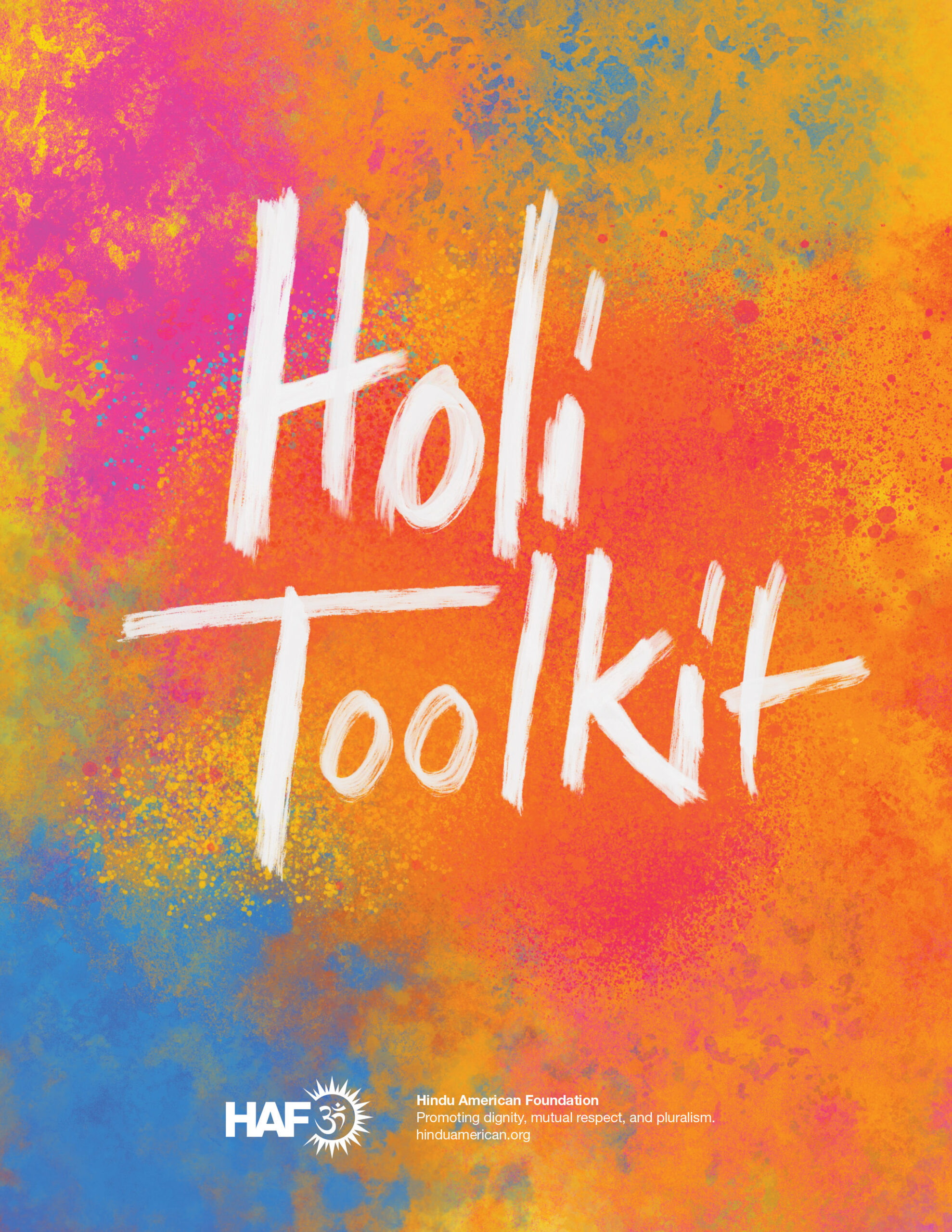
Diwali Toolkit
Diwali, or Deepavali, is a Hindu festival that is celebrated every year on the 15th day of the month of Kartik in the Hindu calendar (in October or November on the Western calendar). During Diwali, sometimes called the “Festival of Lights,” clay lamps or diyas are lit to signify the destruction, through knowledge, of all negative qualities — be it violence, anger, jealousy, greed, fear or suffering. In other words, Diwali celebrates the victory of good over evil.
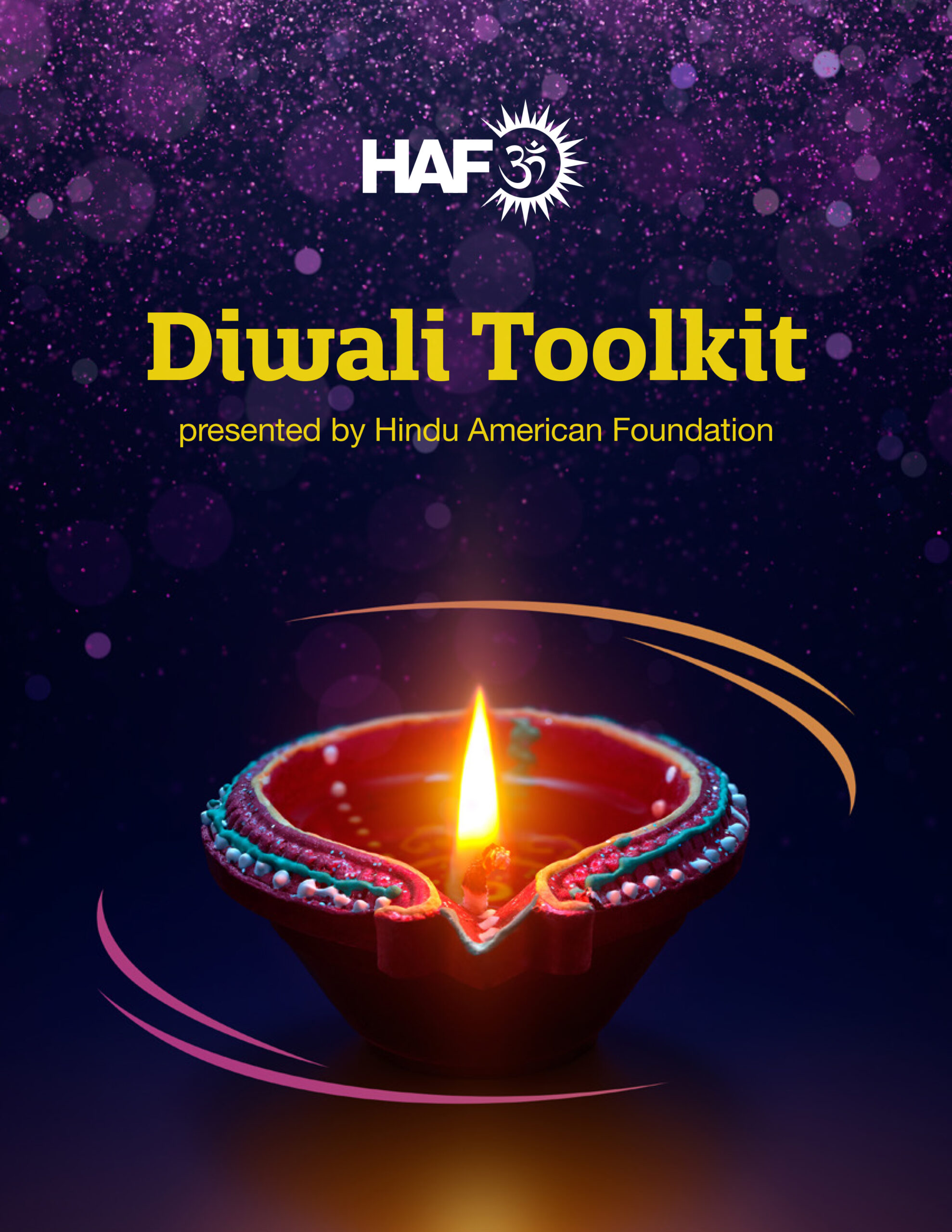
EXPLAINERS
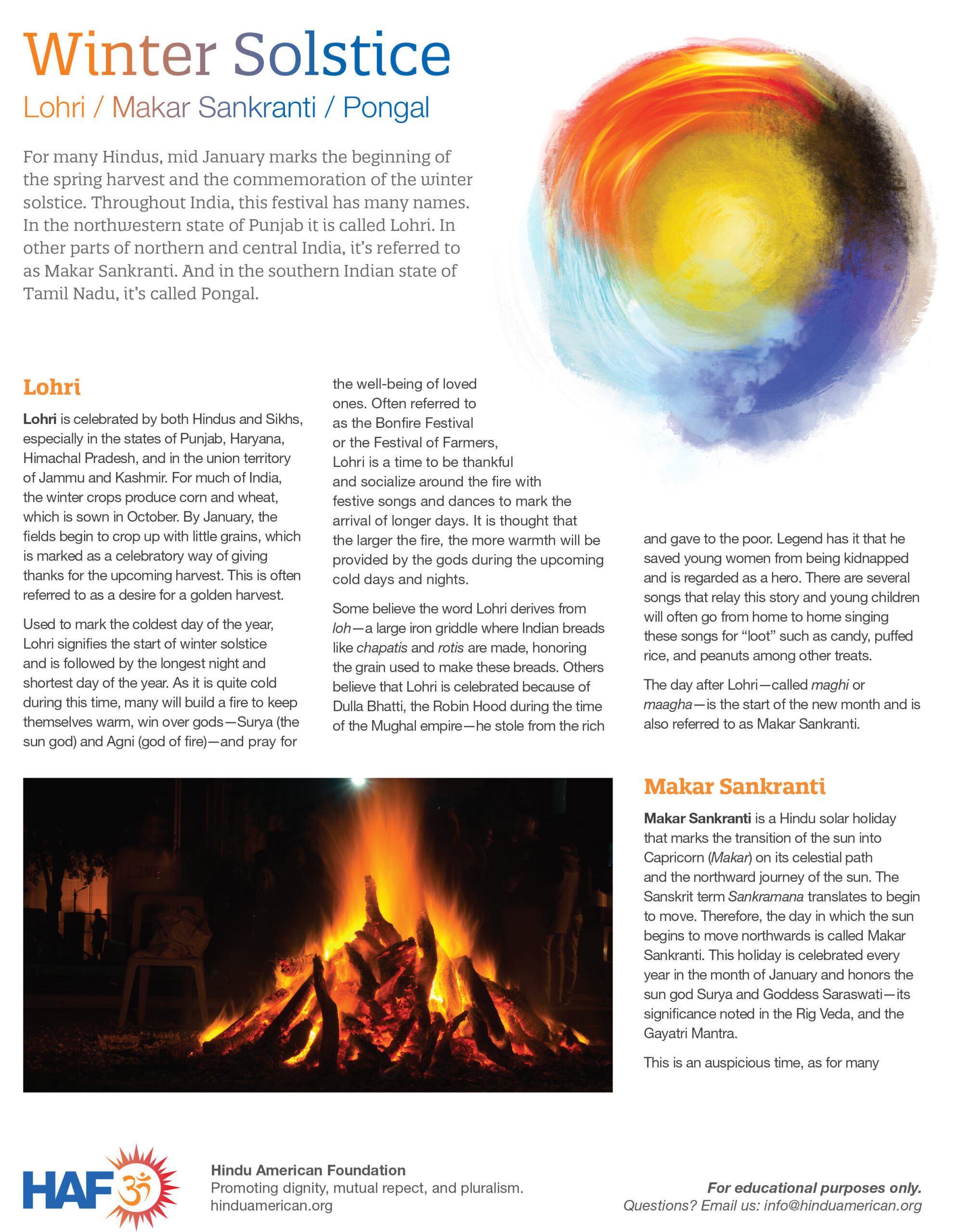
Lohri / Makar Sankranti / Pongal Explainer
For many Hindus, mid January marks the beginning of the spring harvest and the commemoration of the winter solstice. Throughout India, this festival has many names. In the northwestern state of Punjab it is called Lohri. In other parts of northern and central India, it’s referred to as Makar Sankranti. And in the southern Indian state of Tamil Nadu, it’s called Pongal.
Vaisakhi Explainer
For many Hindus, April 13th and 14th marks the celebration of Vaisakhi (va-SAH-kee) or Baisakhi. This festival is held almost every year on the same day and is known as the solar new year for some Hindu communities. This is not universal for all Hindus, as some consider Diwali, Ugadi, and Gudi Padwa as the start of the new year, leading to several different origins as to the significance of why Vaisakhi is celebrated.
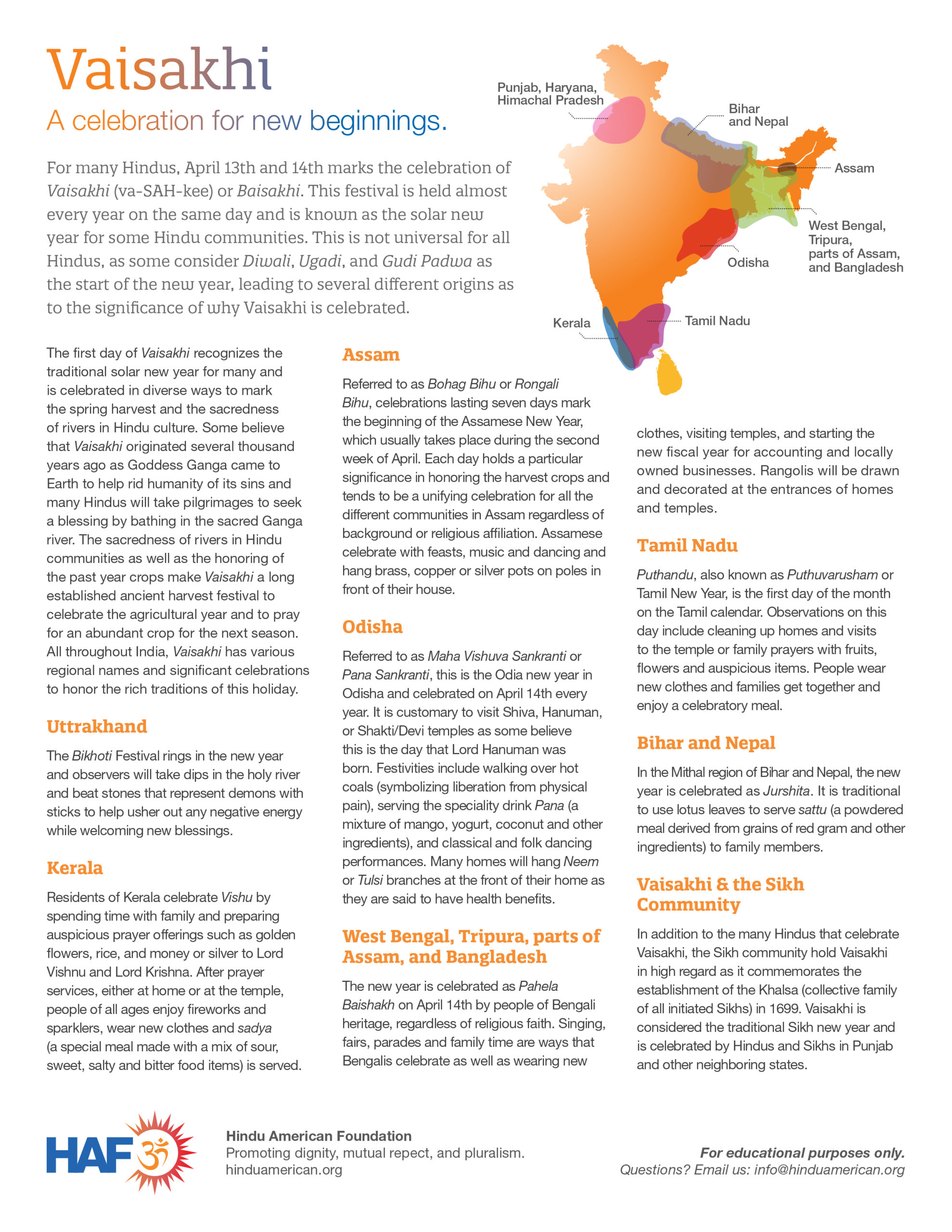
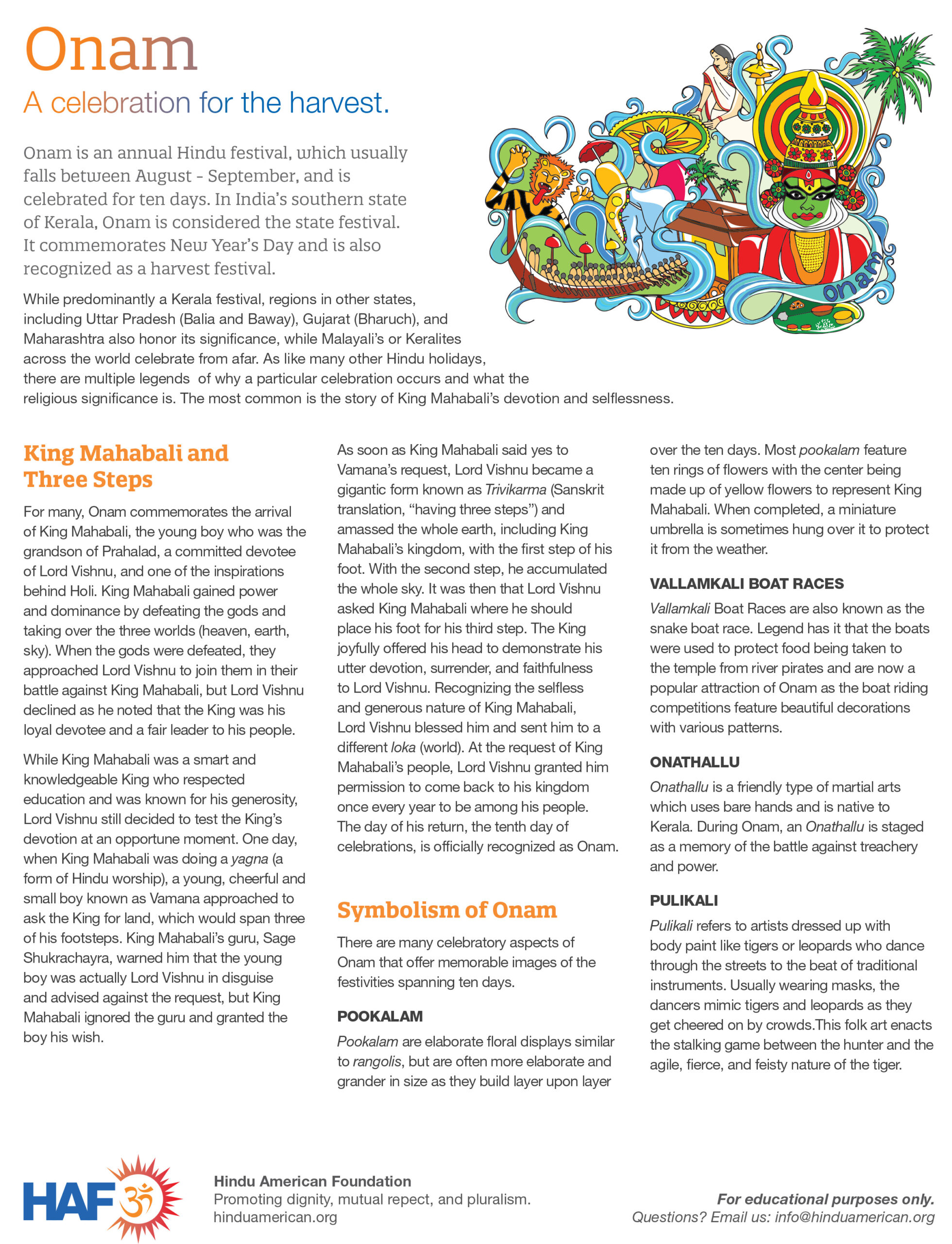
Onam Explainer
Typically in August-September, the holiday of Onam is considered the state festival of Kerala as well as their new year. In addition to being a Hindu holiday associated with Lord Vishnu, there are many vibrant celebrations which honor the traditions of Kerala and bring the community together. Learn more about Onam and how you can participate at home!
LESSON PLANS
Gandhi / Martin Luther King Jr. Lesson Plan
In this lesson plan students will examine the influence of Mahatma Gandhi and the Hindu concept of ahimsa (nonviolence) on leaders such as Martin Luther King Jr. and César Chávez. Students will learn about these leaders, the social change movements used to overcome oppressive ideologies and conditions through nonviolent means, and the unique role played by women in these movements, including Sarojini Naidu, Ella Baker, and Dolores Huerta.
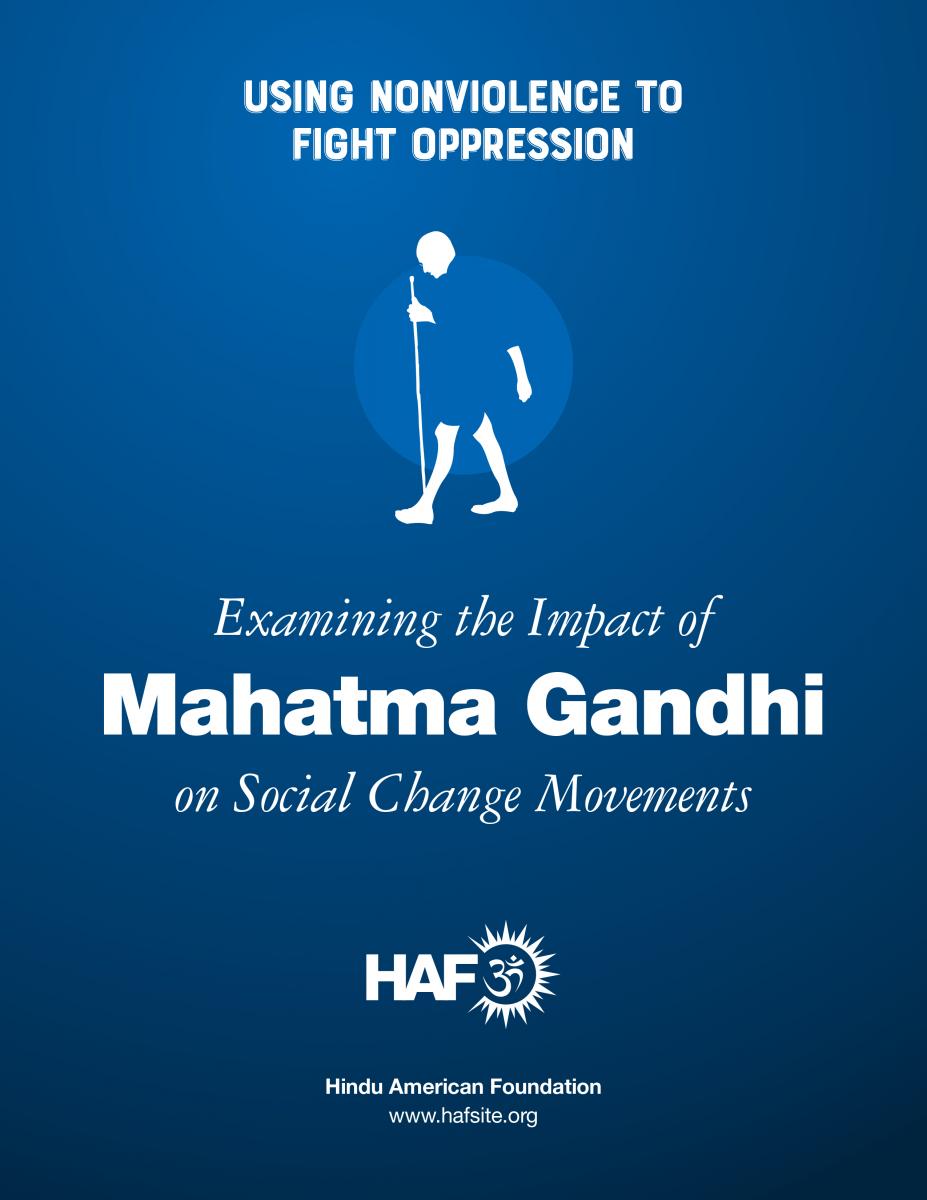
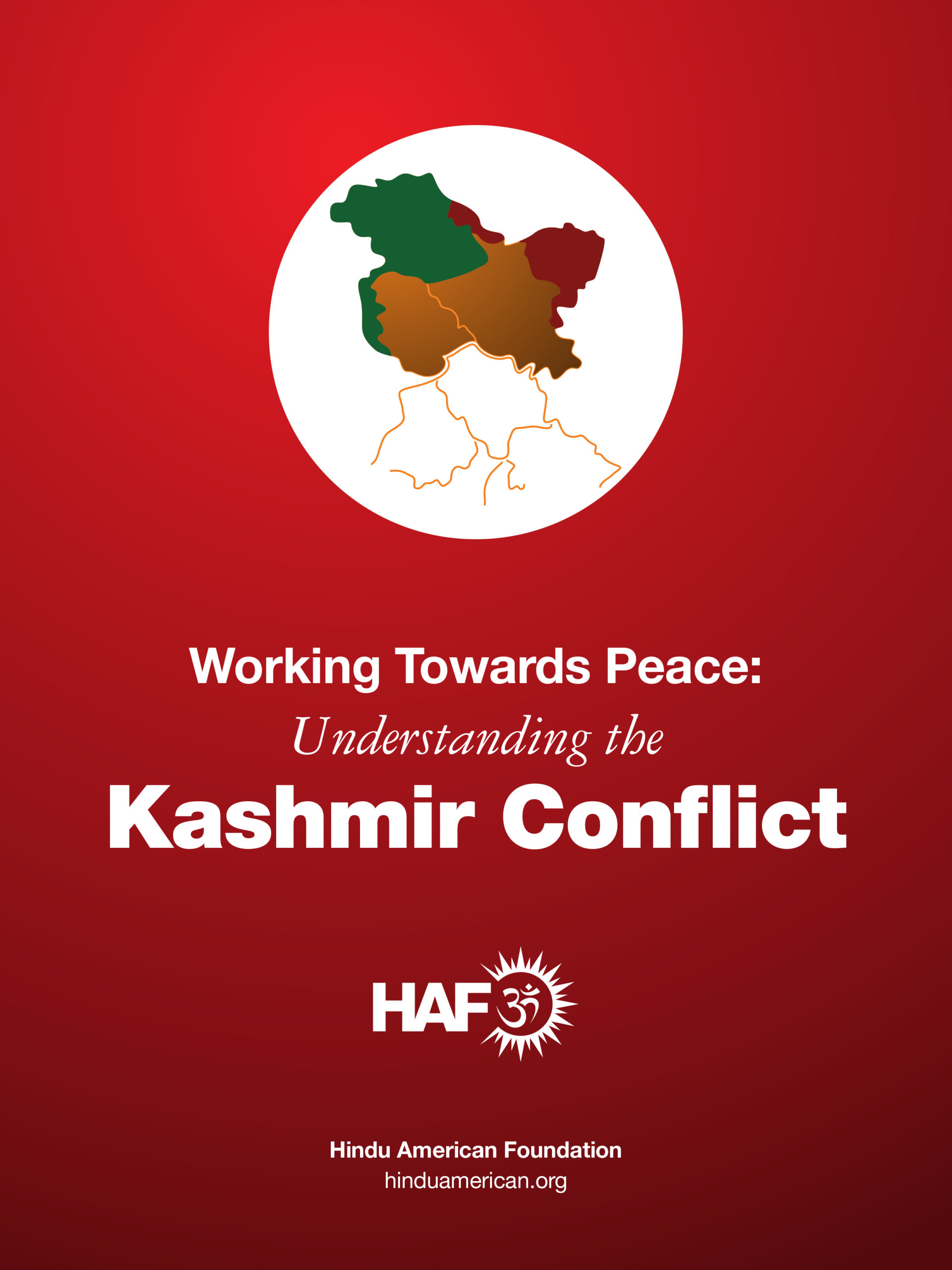
Understanding the Kashmir Conflict
Since 1947, there has been an ongoing conflict in Kashmir (currently divided between India, Pakistan, and China) that is rooted in colonialism, geographical boundaries, socio-religious and historical factors, and terrorism. This three-part critical reading lesson provides students with an opportunity to learn about the significance of the Kashmir conflict and the impact it has on foreign relations between two modern nation states, as well as its influence on the quality of life for the region’s diverse residents.
1971 Bangladesh Genocide Lesson Plan
Geared towards high school World Geography, World History and International Relations courses, the goal of this toolkit is to assist teachers in helping students understand the complexities of the Bangladesh genocide and how they can take action in raising awareness.There are several lesson plan components and a reading primer centered around the historical atrocities and religious persecution of the Bengali Hindu population, which lasted ten months and led to the death of 2-3 million ethnic Bengalis.
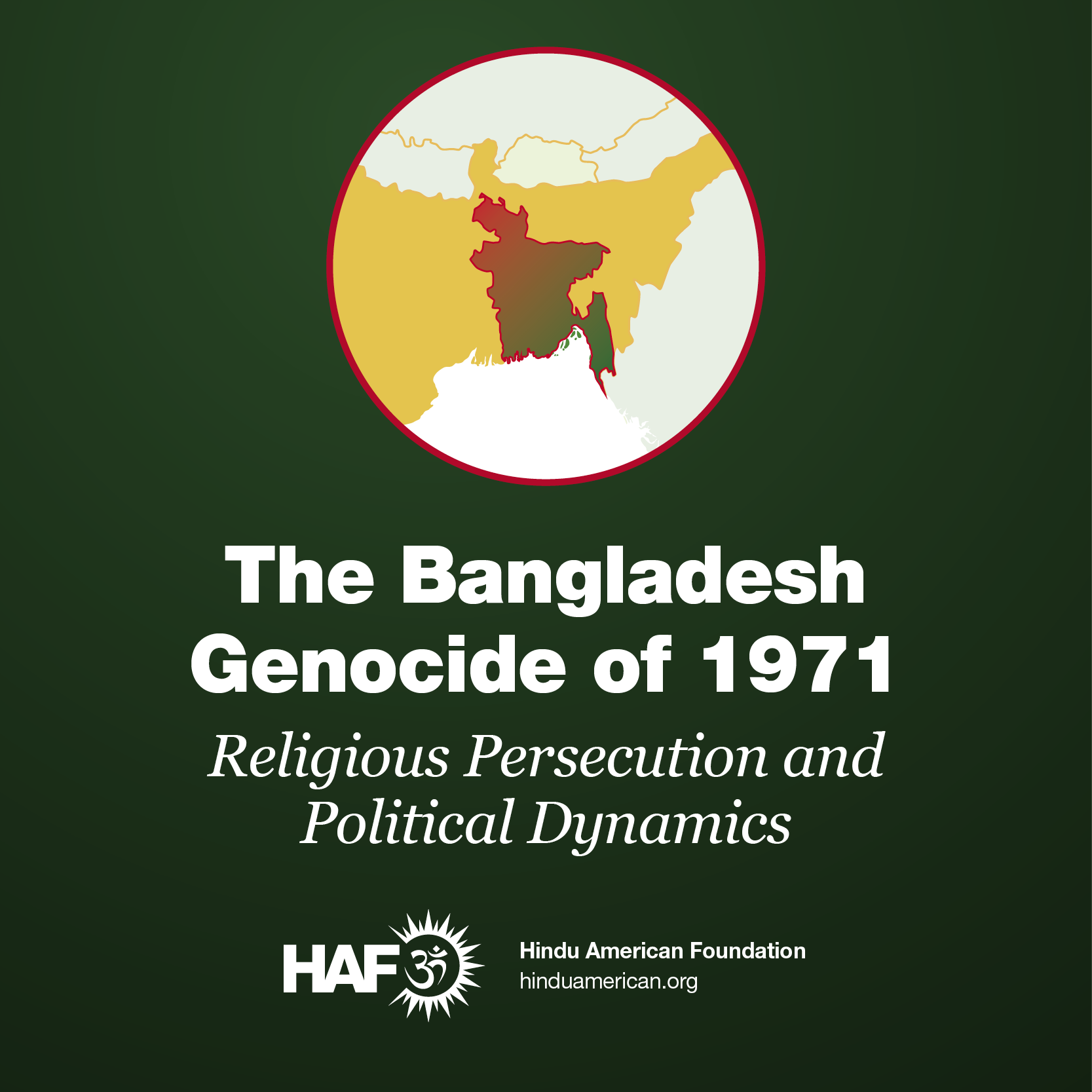
VIDEOS

Donor Spotlight: Thanks to the generosity of Guru Krupa Foundation, HAF is able to offer a unique training program, and web and multimedia resources for K-12 and college teachers in the subject areas of World History, Ancient Civilizations, World Geography, and World Religions, as well as for law enforcement, community, and corporations. This partnership makes it possible to provide training free of charge to all relevant stakeholders. It has also allowed HAF to launch its Ancient India, the Indosphere, and Dharma Traditions in Academia project.







































